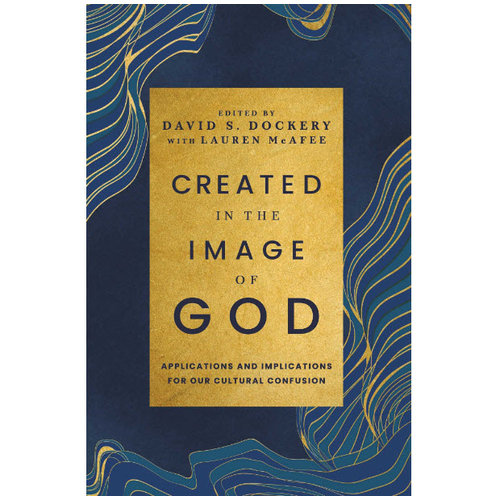
Moving the gospel forward in a day of far-reaching cultural confusion might begin with a clear understanding of what it means to be created in God’s image.
This is the premise of a new book “Created in the Image of God: Applications and Implications for our Cultural Confusion” that brings together philosophers, theologians, and seasoned cultural engagers on a crucial issue.
David Dockery, editor and president of Southwestern Baptist Theological Seminary, joined the New Orleans Baptist Theological Seminary “Defend” podcast recently to discuss why this issue—the imago Dei—critical today.
“It’s certainly a different time than most of us have experienced in our lifetime,” Dockery said on the podcast. “Our culture is looking for rest in a variety of places rather than looking for it in God and the result is cultural confusion all around us.”
The book came together following a 2022 conference hosted by the International Alliance for Christian Education and Stand for Life. Contributors include John Kilner, Trinity Evangelical Divinity School; Ben Mitchell, Union University; Daniel Darling, SWBTS; Lauren McAfee, co-editor, and founder and visionary of Stand for Life; John Stonestreet, Trinity Evangelical Divinity School; Katie McCoy, Women’s Ministry Director, Baptist General Convention of Texas; Robert Stewart, New Orleans Baptist Theological Seminary, and others.
FINDING HUMAN VALUE
Dockery explained that today’s church faces a number and a variety of issues including declining numbers, legal challenges, and uncertainty in government as foundational principles once thought unshakeable—including what it means to be male and female—shift.
“[People] want to ground human value in human freedom,” Dockery said, adding that only the Christian worldview can properly ground human dignity.
Dockery pointed out the irony that some reject physical characteristics when defining gender, yet insist on using physical characteristics—such as consciousness or the ability to make decisions regarding self—to define who is human regarding the preborn or in end-of-life issues.
“Out of being created in the image of God comes human dignity, then human freedom and rights flow out of human dignity,” Dockery said. “Our culture has reversed those things and as a result, we’ll never understand humans the way God intended.”
FIXING WHAT’S BROKEN
Yet the church bears some responsibility for the culture’s misunderstanding of what it means to be created in God’s image, Dockery said.
“We have not talked carefully about these things. We have not taught them well,” Dockery said. “And we have not helped people understand what we really mean when we talk about the effects of sin.”
Helping others understand the meaning of the imago Dei is crucial, Dockery said.
Dockery writes in the book’s introduction that the image of God is not something that is “separable, distinct, or discoverable.” In the podcast, Dockery explained further that being made in God’s image is not like a body part that can be pinpointed, as an arm or a leg can be. Instead, being made in God’s image is a matter of “being” or substance, and cannot be destroyed by sin or circumstances; it is also “relational,” allowing humans to communicate with and relate to God and other persons, Dockery said.
“Ultimately, [the image of God] is our being, it’s our essence, Dockery said. “It’s what actually makes us human.”
Find the NOBTS Defend podcast on Apple Podcasts or at your favorite podcast platform. This podcast is Season 2, Episode 1.